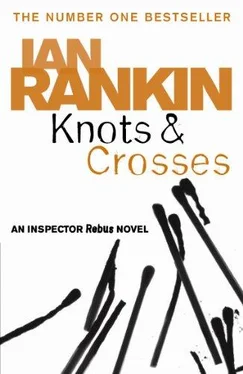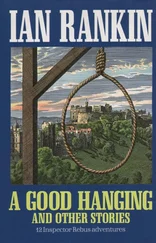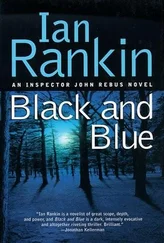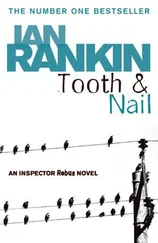Jim Stevens had far too much work to do. The Edinburgh Strangler was proving himself a meaty individual. You couldn’t ignore the bastard, even if you felt you had better things to do. Stevens had a staff of three working with him on the newspaper’s daily reports and features. Child abuse in Britain today was the flavour of tomorrow’s piece. The figures were horrifying enough, but more horrifying yet was the sense of biding time, waiting for the dead girl to turn up. Waiting for the next one to go missing. Edinburgh was a ghost town. Children were kept indoors, those allowed out scuttling through the streets like creatures under chase. Stevens wanted to turn his attentions to the drugs case, the mounting evidence, the police connection. He wanted to, but there simply was not the time. Tom Jameson was on his back every hour of the day, roaming through the office. Where’s that copy, Jim? It’s about time you earned your keep, Jim. When’s the next briefing, Jim? Stevens was burned out by the end of each and every day. He decided that his work on the Rebus case had to stop for the moment. Which was a pity, because with the police at full stretch working on the murders, the field was left wide open for any and all other crimes, including pushing drugs. The Edinburgh Mafia must be having a field-day. He had used the story of the Leith ‘bordello’, hoping for some information in return, but the big boys appeared not to be playing. Well, sod them. His time would come.
When she arrived in the ward, Rebus was reading through a Bible, courtesy of the hospital. When the Sister had found out about his request, she had asked him if he wished to speak to a priest or a minister, but this offer he had declined strenuously. He was quite content — more than content — to flick through some of the better passages in the Old Testament, refreshing his memory of their power and their moral strength. He read the stories of Moses, Samson, and David, before coming to the Book of Job. Here he found a power he could not remember having encountered before:
When an innocent man suddenly dies, God laughs.
God gave the world to the wicked.
He made all the judges blind,
And if God didn’t do it, who did?
If I smile and try to forget my pain,
All my suffering comes back to haunt me;
I know that God does hold me guilty.
Since I am held guilty, why should I bother?
No soap can wash away my sins.
Rebus felt his spine shiver, though the ward itself was oppressively warm, and his throat cried out for water. As he poured some of the tepid liquid into a plastic beaker, he saw Gill coming towards him on quieter heels than previously. She was smiling, bringing what joy there was into the ward with her. A few of the men eyed her appreciatively. Rebus felt glad, all of a sudden, to be leaving this place today. He put the Bible aside and greeted her with a kiss on the nape of her neck.
‘What have you got there?’
He took the parcel from her and found it to contain his change of clothes.
‘Thanks,’ he said. ‘I didn’t think this shirt was clean though.’
‘It wasn’t.’ She laughed and pulled across a chair. ‘Nothing was. I’d to wash and iron all your clothes. They constituted a health hazard.’
‘You’re an angel,’ he said, putting the parcel aside.
‘Speaking of which, what were you reading in the book?’ She tapped the red, fake-leather binding of the Bible.
‘Oh, nothing much. Job, actually. I read it once a long time ago. It seems more frightening now though. The man who begins to doubt, who shouts out against his God, looking for a response, and who gets one. “God gave the world to the wicked,” he says at one point, and “Why should I bother?” at another.’
‘It sounds interesting. But he goes on bothering?’
‘Yes, that’s the incredible thing.’
Tea arrived, the young nurse handing Gill her cup. There was a plate of biscuits for them.
‘I’ve brought you some letters from the flat, and here’s your key.’ She held the small Yale key towards him, but he shook his head.
‘Keep it,’ he said, ‘please. I’ve got a spare one.’
They studied one another.
‘All right,’ Gill said finally. ‘I will. Thanks.’ With that, she handed him the three letters. He sorted through them in a second.
‘He’s started sending them by mail, I see.’ Rebus tore open the latest bulletin. ‘This guy,’ he said, ‘is haunting me. Mister Knot, I call him. My own personal anonymous crank.’
Gill looked interested, as Rebus read through the letter. It was longer than usual.
YOU STILL HAVEN’T GUESSED, HAVE YOU? YOU’VE NO IDEAS. NOT AN IDEA IN YOUR HEAD. AND IT’S ALMOST OVER NOW, ALMOST OVER. DON’T SAY I’VE NOT GIVEN YOU A CHANCE. YOU CAN NEVER SAY THAT. SIGNED
Rebus pulled a small matchstick cross out of the envelope.
‘Ah, Mister Cross today, I see. Well, thank God he’s nearly finished. Getting bored, I suppose.’
‘What is all this, John?’
‘Haven’t I told you about my anonymous letters? It’s not a very exciting story.’
‘How long has this been going on?’ Gill, having studied the letter, was now examining the envelope.
‘Six weeks. Maybe a little longer. Why?’
‘Well, it’s just that this letter was posted on the day Helen Abbot went missing.’
‘Oh?’ Rebus reached for the envelope and looked at its postmark. ‘Edinburgh, Lothian, Fife, Borders,’ it read. A big enough area. He thought again of Michael.
‘I don’t suppose you can remember when you received the other letters?’
‘What are you getting at, Gill?’ He looked up at her, and saw a professional policewoman suddenly staring back at him. ‘For Christ’s sake, Gill. This case is getting to all of us. We’re all beginning to see ghosts.’
‘I’m just curious, that’s all.’ She was reading the letter again. It was not the usual crank’s voice, nor a crank’s style.
That was what worried her. And now that Rebus thought about it, the notes had seemed to appear around the time of each abduction, hadn’t they? Had there been a connection of some kind staring him in the face all this time? He had been very myopic indeed, had been wearing a carthorse’s blinkers. Either that or it was all a monstrous coincidence.
‘It’s just a coincidence, Gill.’
‘So tell me when the other notes arrived.’
‘I can’t remember.’
She bent over him, her eyes huge behind her glasses. She said calmly, ‘Are you hiding anything from me?’
‘No!’
The whole ward turned to his cry, and he felt his cheeks flush.
‘No,’ he whispered, ‘I’m not hiding anything. At least …’ But how could he be sure? All those years of arrests, of charge-sheets, of forgettings, so many enemies made. But none would torment him like this, surely. Surely.
With pen, paper, and a lot of thought on his part, they went over the arrival of each note: dates, contents, style of delivery. Gill took off her glasses, rubbing between her eyes, sighing.
‘It’s just too big a coincidence, John.’
And he knew that she was right, way down inside him. He knew that nothing was ever what it seemed, that nothing was arbitrary. ‘Gill,’ he said at last, pulling at the bedcover, ‘I’ve got to get out of here.’
In the car she goaded him, spurred him on. Who could it be? What was the connection? Why?
‘What is this?’ he roared at her. ‘Am I a suspect now or something?’
She studied his eyes, trying to pierce them, trying to bite right into the truth behind them. Oh, she was a detective at heart, and a good detective trusts nobody. She gazed at him as though he were a scolded schoolboy, with secrets still to spill, with sins to confess. Confess.
Gill knew that all this was only a hunch, insupportable. Yet she could feel something there, something perhaps behind those burning eyes. Stranger things had happened during her time on the force. Stranger things were always happening. Truth was always stranger than fiction, and nobody was ever wholly innocent. Those guilty looks when you questioned somebody, anybody. Everyone had something to hide. Mostly, though, it was small time, and covered by the intervening years. You would need Thought Police to get at those kinds of crime. But if John … If John Rebus proved to be part of this whole caboodle, then that … That was too absurd to think about.
Читать дальше












